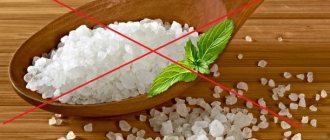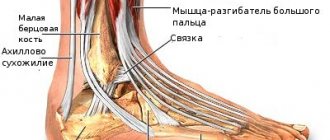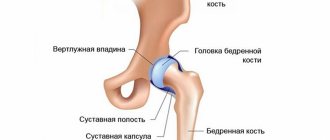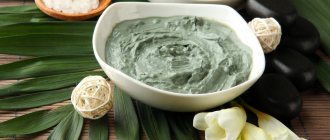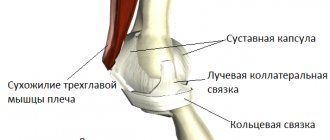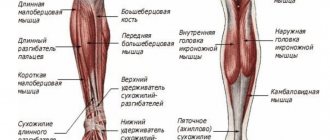Inflammatory joint damage is a serious pathology, which is not only characterized by many unpleasant symptoms and a deterioration in the quality of life, but can also quickly lead to disability with subsequent loss of ability to work.
According to statistics, among Russians over 50 years of age, 38% of men and 17% of women suffer from joint damage of inflammatory etiology (arthritis).
Unfortunately, medicine in most countries is not able to stop the progression of the disease and provide adequate care to patients due to the extremely high cost of treatment (genetic engineering drugs and surgical joint replacement are required).
Fortunately, diet correction can slow down the development of arthritis of any etiology.
Statistical surveys show that making changes to the daily diet leads to suppression of symptoms of joint inflammation in 24% of people. And another 15% of people report a slight positive effect.
There are a large number of products that have anti-inflammatory and antioxidant properties, and therefore can alleviate the general condition in patients with arthritis (mainly of autoimmune etiology).
Below we have reviewed a list of 11 foods that are most beneficial for the health of human cartilage and joints.
Fatty fish
It is most beneficial to eat fish that contains large amounts of omega-3 fatty acids (salmon, sardines, trout, mackerel).
Omega-3 fatty acids have been shown to reduce pain and morning stiffness in patients with rheumatoid arthritis. Scientists recommend including fish in the course of mandatory non-drug therapy for arthritis.
One scientific study conducted in Finland showed that eating fatty fish for 8 weeks leads to a decrease in inflammatory mediators, and also reduces the risk of developing cardiovascular diseases and type II diabetes.
Sea fish is also an important source of vitamin D. Recently, more and more attention has been paid to the problem of deficiency of this biologically active substance, since it is presumably one of the risk factors for arthritis.
You should consume at least 2 servings of fish (200 g each) per week to maximize the anti-inflammatory properties. Such a diet also helps normalize the lipid profile and slow down the development of atherosclerosis.
Fatty fish, due to the presence of omega-3 fatty acids and vitamin D, help prevent the development of arthritis, reduce the severity of symptoms during their course, and also prevent the occurrence of pathologies in the cardiovascular system.
Diet for arthritis - general recommendations
For people with all types of arthritis, there are a few general guidelines worth paying attention to.
Foods containing omega-3 fatty acids should be included in the diet for arthritis . These substances reduce inflammation, which alleviates the symptoms of arthritis. Most omega-3 fatty acids are found in sea fish, in its fatty varieties, but if it is contraindicated for you, pay attention to flaxseed oil. It is easier to digest and also has a healing effect due to the content of the same healthy fatty acids.
For all types of arthritis, you should give up strong tea, coffee, and reduce alcohol consumption. The diet for arthritis limits, and often completely excludes, pickles, hot seasonings and spices. But there are exceptions here. Some studies have found the positive effects of turmeric and ginger. However, you should be careful here and exclude allergic reactions.
Although there is no solid scientific evidence on this matter, some studies have shown that plants of the nightshade family - potatoes, bell peppers, tomatoes, eggplants - can have a negative effect on the condition of patients with arthritis. If you notice a deterioration in your health after eating these foods, eliminate them from your diet.
The main thing to remember: the diet for arthritis should be balanced, with a sufficient content of vitamins and minerals, preferably low in calories.
Read more about NANOPLAST forte
Garlic
The active substances contained in garlic have pronounced chondroprotective, anti-inflammatory, and antioxidant properties.
Garlic has been noted to have a positive effect on the symptoms of arthritis by improving the functioning of immune system cells.
Particular attention is paid to sulfur compounds. They suppress the destruction of the matrix (intracellular fluid) in chondrocyte-like cells by inhibiting a number of enzymes, thereby preventing the manifestation of osteoarthritis.
Korean scientists have concluded that thiacremonone, contained in garlic, reduces the intensity of pain in patients with rheumatoid arthritis, reduces the severity of edema (including in the periarticular tissues), and accelerates the healing of damaged segments.
In addition, with regular addition of garlic to food, the risk of developing atherosclerosis and type II diabetes mellitus is reduced.
It is recommended to eat 2-3 cloves of garlic per day.
Regular addition of garlic to the diet can improve the condition of the musculoskeletal system and the entire body due to its pronounced anti-inflammatory properties.
Ginger
Ginger is widely used in many cuisines around the world, as well as in folk medicine.
One scientific study conducted in 2001 demonstrated that using ginger for 42 days reduced joint pain in 63% of patients.
At the same time, the effect of the plant is ensured due to the content of a massive volume of substances that inhibit inflammatory reactions (suppressing the secretion of cytokines: tumor necrosis factor-a, interleukins 1,4,5).
Regular consumption of tea, soups, sweet confectionery, as well as pure ginger helps to reduce the symptoms of damage to the articular apparatus.
Thus, regular consumption of ginger in any form helps limit inflammatory reactions in the joints and ligaments, reduce the severity of pain and other symptoms.
COLLAGEN
- Helps strengthen bones.
- Reduces the risk of fractures.
- Relieves inflammation and joint pain.
- Returns joint mobility.
- Helps strengthen bone tissue.
- Accelerates the process of restoration of bones and connective tissues after a fracture or other damage.
- Strengthens hair, teeth, nails.
Which collagen is better? Animal collagen is made from the cartilage, skin and tendons of cattle and poultry. It is more difficult to absorb by the body than marine collagen, which is produced from fish bones, fat and cartilage. Marine collagen is ideal for human joints.
Broccoli
Since ancient times, broccoli has been considered one of the healthiest foods and has been used to treat many diseases.
According to the accumulated data of Chinese scientists, the plant reduces the concentration of inflammatory cytokines (tumor necrosis factor-a, interleukins 1 and 6). As a result, the course of the inflammatory reaction in the joints and its symptoms quickly disappear.
Broccoli contains a special component - sulforaphane. It, according to researchers, prevents the formation of immune cells that secrete inflammatory mediators.
Eating broccoli leads to a decrease in the severity of any inflammatory processes in the body. Positive properties have been proven specifically for joints.
BROMELINE
Bromelain is a source of substances beneficial to the human body. He:
- eliminates swelling;
- relieves inflammation;
- prevents the development of cancer cells.
It is also useful for those who have recently experienced an injury, and for those who suffer from arthritis or inflammation of the joints. In addition, bromelain helps muscles recover after a hard workout. If you regularly attend workouts, bromelain will reduce muscle pain after exercise.
Walnuts
Walnuts contain a significant amount of compounds that have anti-inflammatory effects.
Scientific work shows that their addition to the diet has a positive effect on the course of rheumatoid arthritis and autoimmune intestinal diseases (Crohn's disease, ulcerative colitis). The effects are associated with the omega-3 fatty acid content of the nuts.
Healthy polyunsaturated fats also reduce the intensity of pain, stiffness after sleep and improve general condition.
In addition to walnuts, scientists recommend eating pistachios, peanuts, hazelnuts and almonds. They contain a lot of useful substances and are recommended for use by rheumatological patients.
Walnuts contain a lot of omega-3 fatty acids, which effectively eliminate inflammatory processes in the joints and are a means of symptomatic therapy.
Top 15 best foods for strengthening joints
To restore joints and improve the condition of cartilage and ligaments, it is recommended to include such products in your diet on an ongoing basis.
Oily fish
Unlike fatty meat, fatty fish can and should be consumed because it contains beneficial acids, including omega-3. Therefore, you should include trout, salmon, tuna, as well as more accessible species such as herring and mackerel in your diet.
Legumes
Almost all legumes, including soybeans, are rich in fiber and vegetable proteins, and they do not contain harmful fats. Thanks to this, such products help strengthen the joints and organs of the digestive system.
Olive oil
Contains beneficial fatty acids that inhibit inflammatory processes in the joints. For the same reason, it is useful to consume walnut and avocado oils. They help prevent the development of arthritis and osteoarthritis.
Cherry
This berry contains special substances anthocyanins. They help in the treatment of gout and deformities of various joints. Also, similar components can be found in blueberries, blackberries and strawberries, but they are less in quantity.
Dairy
Milk contains calcium, vitamin D, potassium and other beneficial components. They help strengthen bones, joints, ligaments and other elements of the musculoskeletal system. Therefore, you need to include almost all dairy products in your diet. For example, cottage cheese and cheese are sources of calcium, while yogurt and milk itself contain many vitamins.
Whole grain cereals
These foods promote weight loss because they are filling but also lower in calories than regular wheat flour. Therefore, they need to be included in the regular diet, especially on fasting days.
Fruits
For joints, tendons and ligaments, sources of vitamin C are especially useful, which prevents inflammatory processes and strengthens the immune system. It is recommended to constantly consume any citrus fruits, apples, as well as pomegranate and kiwi.
Broccoli
Broccoli contains calcium and vitamins (including C, group B, K, potassium, iron, copper). These components help cope with the symptoms of pathologies such as arthrosis and arthritis.
Green tea
The components of this drink prevent bone destruction and inflammatory processes in joints. They are used to treat and prevent rheumatoid arthritis. At the same time, green tea in large quantities literally washes away calcium, so you can drink no more than 3 glasses a day.
Meat with cartilage
To treat joints, you can eat pork and beef, preferably with cartilage and connective tissue, as well as any chicken meat. They contain gelatin, which is especially important for joint restoration.
Gelatin
Gelatin can also be used as part of other products, for example, in pure form or in jelly, including jellied meat and aspic. This is a useful product that strengthens joints and cartilage well.
Garlic
Garlic contains a number of useful components that restore cartilage tissue and inhibit inflammatory processes. For example, it is rich in sulfur-containing substances that strengthen cartilage tissue.
Another important compound is thiacremonone. It helps relieve pain from rheumatoid arthritis and also counteracts swelling. At the same time, you should not overuse garlic - you can eat no more than 3 cloves of it (raw).
Ginger
A 2001 study found that regular consumption of ginger helped reduce joint pain in 63% of cases. It contains substances that counteract inflammatory processes. Therefore, those suffering from joint diseases need to include this product in their daily menu.
Spinach
Spinach and leafy greens in general help cope with inflammatory processes. The most valuable component in them is kaempferol. It is what prevents inflammation and provides an analgesic effect. A 2021 study found that regularly eating spinach actually helps promote joint health.
Grape
Another useful product that has a beneficial effect on the health of joints and ligaments. It contains antioxidants that suppress inflammation. Thanks to this, grapes can be used as an additional remedy for the treatment of arthritis.
Even with good medications, patients with joint problems need to pay attention to their diet and overall lifestyle. If you regularly consume the described products, you can significantly reduce pain and suppress inflammatory processes. Therefore, it is recommended to follow the prescribed diet - the first effect will be noticeable after 3-4 weeks.
Berries
The berries contain a lot of antioxidants (effective in preventing cancer and preventing programmed aging of the body), vitamins, macro- and microelements.
American scientists claim that frequent consumption of strawberries (at least 2 times a week) reduces the concentration of inflammatory markers (mainly C-reactive protein) in the blood by 14%.
Additionally, strawberries reduce the risk of developing atherosclerosis, diabetes, coronary heart disease, myocardial infarction and stroke.
Due to the large number of flavonoids (quercetin, hesperidin, rutin) contained in the berries, a pronounced anti-inflammatory effect is realized. The effect has been proven in experimental animal models.
You should consume strawberries, blackberries and blueberries on a regular basis to provide your body with all the necessary nutrients and effectively fight arthritis.
Berries contain a significant amount of flavonoids and antioxidants, which reduce the severity of inflammatory diseases of the musculoskeletal system and prevent the appearance of malignant cell transformations.
Useful and harmful foods for the spine
Essential vitamins and microelements
Food should not just go into the stomach. It must be well absorbed, dissolve, enter the blood and reach the bones of the spinal column. The comprehensive use of certain vitamins will help to significantly facilitate this process.
- So, most people know that vitamin D helps calcium absorption.
- Vitamin A is an essential element of the calcium cycle. It is listed as fat soluble and cannot be absorbed in the absence of fat.
- The B group of vitamins is important for the breakdown of proteins and carbohydrates.
- C (ascorbic acid) – necessary for collagen synthesis. This vitamin converts calcium from an inorganic compound to an organic one.
The supply of certain microelements and vitamins to the structure of the spine is very important. Among microelements, the presence of calcium, magnesium, phosphorus and manganese .
Enemies of the spine and joints - foods that need to be limited in the diet
- Table salt Contained in any canned food, semi-finished products, fried potatoes, frozen foods, cheeses. Salt does not allow calcium to integrate normally into the bone tissue of the spine and corrodes it, forming holes. Moreover, it creates its excessive extraction from the bones. Osteoporosis occurs.
- Alcohol What effect does alcohol have on our spine? Calcium is found in human blood in two forms. 50 percent is ionized active calcium, which is well absorbed into the blood, and calcium bound to transport proteins that move it. This calcium, no matter how much it is, will never get into the bones of the spine. Alcohol blocks the conversion of calcium into an active form and all calcium in our blood becomes inactive. Osteoporosis sets in and bones begin to break.
- Margarine Margarine is an artificially created hydrogenated fat in a semi-solid form. Our body processes them with great difficulty. Trans fat, which is margarine, when it enters the stomach, blocks the actions of vitamins K and D. Bones become fragile and can break even with light stress.
- Refined sugar and grains after industrial processing These products contribute to excess weight gain, which has a harmful effect on the spine and the entire musculoskeletal system. You should see as little as possible in your diet of confectionery, creams, chocolate, white rice and semolina porridge, white bread and buns.
- Coffee This common and beloved product by many interferes with the normal absorption of calcium in the body, and therefore large quantities of this drink are a direct threat to the health of the spine and joints.
- All canned foods , pickles, smoked meats, sausages, fast food, sweet soda.
- Nitrates, vinegar, glutamate, salt, sugar substitutes, dyes and food additives with the symbol E found in these foods help wash calcium out of the bones and interfere with its absorption from food in the intestines.
Spinach
Experiments show that the level of inflammatory cytokines in the blood is inversely proportional to the consumption of various types of leafy greens (including spinach).
Spinach contains many antioxidants, the most valuable of which is kaempferol. It blocks the effect of inflammatory mediators on cartilage and joint tissue.
One study conducted in 2021 demonstrated that there was a significant positive therapeutic effect when treating rheumatoid arthritis and arthrosis with kaempferol.
Spinach must be present in the daily diet of patients with joint pathologies. It has been proven that spinach inhibits inflammation and slows down the progression of cartilage tissue destruction, and also promotes their restoration.
Grape
Grapes have antioxidant and anti-inflammatory properties, prevent the development of atherosclerotic changes in the walls of large vessels.
As a result of one experiment, it was proven that when consuming 250 g of fresh grapes daily for 3 weeks, there is a decrease in the concentration of inflammatory markers (adiponectin, interleukin 10) in the blood, which has a beneficial effect on the course of autoimmune diseases of the joint and ligamentous apparatus.
In addition, the skins of grapes, as well as wines based on them, contain a significant amount of resveratrol, a special substance that has a negative effect on the release of mediators of the inflammatory response into the bloodstream.
Grapes improve the clinical course of arthritis by inhibiting inflammatory processes.
Olive oil
Olive oil has an extremely beneficial effect on the course of arthritis. Studies on rodents have found that consuming oil for 1.5 months slows down the process of destruction of cartilage tissue and helps to delineate the source of inflammation.
Using olive oil instead of sunflower and other types reduces the concentration of C-reactive protein by almost 40%.
Adding olive oil to food is an independent factor preventing the manifestation of rheumatoid arthritis.
Olive oil reduces inflammatory changes and prevents the development of arthritis of any origin.
What do we exclude?
Not all foods are useful for this disease; some can only aggravate the situation: such nutrition can inhibit metabolic processes and contribute to the deposition of excess salts and fats. When creating a diet, you need to take into account that in case of arthrosis of the joints, we exclude excessive consumption of meat. You also need to add less table salt and foods high in salt to your food:
- Various sauces and mayonnaise
- Chips, pistachios, salted seeds
- Salty fish
- Some types of cheeses
General recommendations on nutrition for joint arthrosis
- Food should be consumed in small portions, chewing thoroughly. This way it will be better absorbed
- It is important to diversify your diet, periodically replacing some foods with others, so as not to become addictive and to get the effect of vitamins and proteins
- You need to drink at least a liter of water daily - this will speed up your metabolism and remove toxins
- To remove excess appetite, you can drink clean water or eat some fresh fruit between meals.
- Eliminate alcohol, fast food and processed foods, as well as spicy foods
- You should not start a “starvation” diet on your own, this can have the most unfavorable effect on the body.
- You should definitely consult with the experienced doctors of our clinic, who will select the right diet based on the individual characteristics of each patient.
On this topic:
- Treatment of joint arthrosis
Themes
Arthrosis, Joints, Proper nutrition Date of publication: 10/20/2014 Date of update: 11/28/2018
Reader rating
Rating: 5 / 5 (1)
Cherry juice
Cherry juice provides the body with a wide range of nutrients: valuable vitamins, macro- and microelements, a number of amino acids.
In one experiment, it was proven that drinking 240 ml of cherry juice 2 times a day for 6 weeks reduces the severity of symptoms of osteoarthritis, leads to the reverse development of inflammatory changes, and increases the rate of regeneration of destroyed bone tissue.
The described effects significantly improve the overall quality of life of patients.
Cherry juice is a natural remedy for reducing inflammation in the joint apparatus and alleviating general condition.
Turmeric
Oriental spice is widely used in modern and folk medicine and cooking.
The effect of turmeric is ensured by the presence of curcumin, which relieves pain and reduces inflammation in the affected joints.
The effects of the plant are superior to those of selective cyclooxygenase-2 inhibitors. For example, 350 mg of turmeric extract shows better results than celecoxib. And 500 mg, according to scientists, is more powerful than 50 mg of diclofenac.
This option of replacing drugs obtained chemically is very important for people who regularly take non-steroidal anti-inflammatory drugs (the frequency of NSAID-associated gastropathy, gastric bleeding, liver and kidney damage is reduced).
You should add turmeric to your daily meals more often to reduce the risk of joint pain and prevent osteoarthritis.
What foods are harmful to joints?
In modern cooking there are many dishes and snacks that can cause damage to bone and connective tissue. They contain substances that aggravate the symptoms of diseases, and in healthy people, accelerate the development of joint pathologies.
Here are foods to avoid to keep your joints healthy:
- Trans fats. Chemically processed vegetable fats are saturated with aging stimulants - free radicals. They damage cells and cause inflammation throughout the body, including the joints. Trans fats are found in abundance in processed snacks, frozen foods, cookies, crackers and margarine.
- Red meat. It is rich in acidic proteins, which cause salt deposition in the joints.
- Coffee. Possessing strong diuretic properties, the tonic drink dehydrates tissues and removes beneficial minerals from the body.
- Monosodium glutamate. This “tasty salt,” found in soy sauce, soup mixtures, and Asian dishes, has a negative effect on the liver. As a result, the body becomes overwhelmed with toxins that cause joint inflammation.
- Sugar. It releases cytokines - proteins that enhance the inflammatory process.
- Gluten and casein. These substances worsen the symptoms of arthritis - pain, swelling and immobility. People with joint diseases should sharply reduce their intake of wheat, rye, barley and full-fat dairy products.
- Aspartame. This powerful sweetener is used in more than 4,000 types of dietary sweets and drinks. The immune system may respond to the chemical with inflammation.
